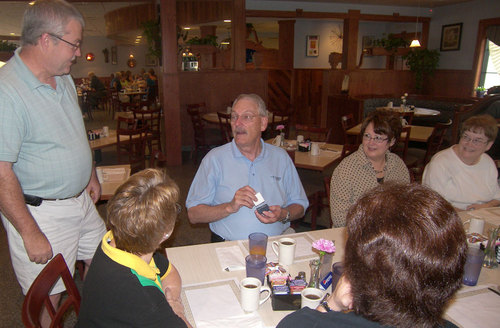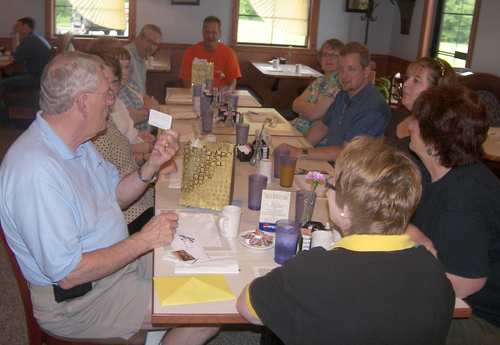August 6, 2009
|
Well, I moved the last of my books out of the office over the weekend. I will complete a few loose ends over the next two weeks and then I will go to Greencastle, Pa., to preach at Macedonia UB and at the Rhodes Grove Camp Meeting Aug 16-20. Those will be my last duties as Bishop.
Many have asked what I am going to do in retirement. So I thought I ought to respond.
For the first couple of weeks, I plan to do very little. I am sure I will become involved in some projects around the house. This will be the first time for many years when I will not have a job to go to in the morning. But I believe more than my job defines my life.
First and foremost, I will still be a follower of Jesus Christ. I hope to have the time to read and study in detail a few topics for which I have a great interest.
I look forward to spending more time with my wife of 49 years, EJ. For all our married life, I have held a job and a great deal of the time she has been employed as well. Next to Jesus, she is the love of my life and I look forward to the time we will have together.
I haven’t been a “person in the pew” since my days in Wheaton, Ill., with Scripture Press. EJ and I look forward to finding a church home where we can serve in our areas of giftedness and interests.
Moving is also in our near future. Don’t know where yet. We had hoped to have a house purchased way before this, but so far nothing. We don’t know what the Lord is trying to say to us, but at this point we are still looking. We have leased a house from Huntington University for the past four years and we need to move out ASAP.
Every time we have moved, EJ and I have talked about the need to rid ourselves of much accumulation of “stuff,” but we really never have. We move it and store it away somewhere…garage, closets, attic, basement…you get the drift. This move we will have a huge moving-on sale, and hopefully a lot of that “stuff” can be moved from our house to someone else’s so they can store it away until that time they need to have a huge garage sale.
It will be nice to get settled somewhere.
After the dust settles, I’d like to do some pulpit supply, seminars, and church consultations as opportunities present themselves. I still believe what the rock in my yard says, “Where God is taking us is always better than where we’ve been.” I look forward with eager anticipation to whatever that may be.
Thank you for giving me the opportunity to serve my church in this high capacity. It has been a rewarding, challenging, and humbling experience.




